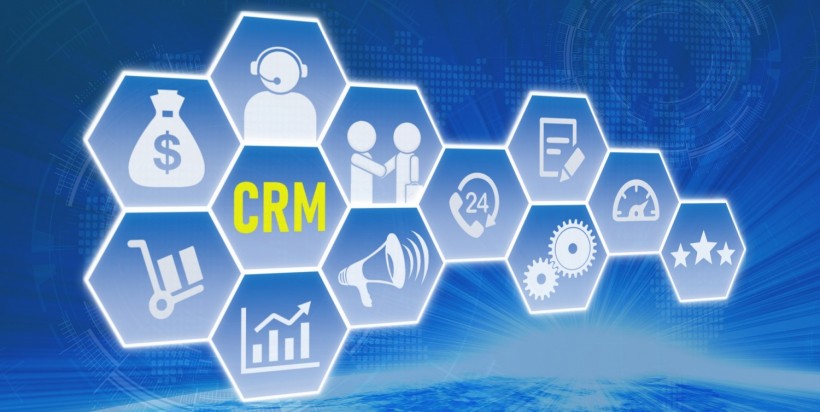
(Photo : Tumisu from Pixabay)
Companies that invest in data invest in their future. Businesses target billions of dollars every year to store, collect, and analyze their data in an effort to see value. But when leaders don't see value from their data initiatives, their first assumption is that they need to collect more data. This can lead to data overwhelm, which only compounds the issue.
The truth, according to ElectrifAi CEO Edward Scott, is that data collection isn't the problem. It's a question of choosing the right data, cleaning it, organizing it, and mobilizing it in a way that delivers results.
Businesses are keen to continue investing in customer relationship management platforms, enterprise resource planning systems, and other data storage methods, but that won't generate data value. ElectrifAi's CEO shares why CRMs aren't the answer to data value and how organizations can overcome hurdles to return on investment.
Why CRMs Aren't the Answer
Customer relationship management platforms are an essential tool for sales, marketing, customer service, and more. Businesses use CRMs to store customer contact information, log communications, pull leads through their sales pipeline, and even predict future customer behavior.
But for all of the data they hold, create, and organize, CRMs alone won't help businesses mobilize their data in a way that generates value.
In fact, Edward Scott believes that CRMs only add to the chaos. "The world doesn't need another platform. They're all great, but that's plumbing and infrastructure," he explained. "We need greater intelligence to drive value out of what's in the CRM."
CRMs play a supporting role in the data equation, but they're far from an answer to the data value puzzle. Organizations know how to collect data, but don't know how to leverage it. As businesses cope with data overwhelm, they need to see past the horizon and acknowledge that storing data won't make data more valuable.
It's tempting to continue investing in CRMs and other data collection systems, but these approaches won't squeeze more value out of corporate data. "'This is the way we've always done it' are some of the most dangerous words in economics and business," Edward Scott warned.
Businesses simply can't get by with CRMs alone. "In the past 14 years, most businesses have gotten a subsidy from cheap labor, cheap capital, and cheap goods," ElectrifAi's CEO explained, "Well, we're on the other side of that trade. The interest rates are rising. Labor is very expensive and goods are expensive."
Instead of maintaining the status quo, businesses should change their perspective to garner value from data. "How are enterprise customers going to drive value? We at ElectrifAi believe that data will be the driver of enterprise value. The data about your customers, about who they are, who they deeply are, what they want, what they don't want - it's all in your systems," Edward Scott said.
ElectrifAi: Solving the Data Value Problem
CRMs generate an overwhelming amount of data. Companies often assume they need all of these data points to generate value, but that isn't accurate. According to Edward Scott, seven data points are usually enough to solve a particular business problem.
Instead of collecting more data, Edward Scott's team believes in mobilizing companies' existing data to generate value. "How do we turn the data into a strategic weapon to drive revenue or optimize operations? And how do we do it quickly?" he said. "What we've done is we figured out how to productize machine learning, natural language processing, and computer vision so that companies can quickly use those things as tools to solve the business problem."
In fact, ElectrifAi's team is able to deliver value in as little as four to six weeks. "The machine learning part, ironically, it's not the hard part. The hard part is on the data side," Scott explained. It takes his team longer to clean and prepare client data than it does to create machine learning models for the data.
CRMs and other data collection solutions often lead to mismatched, inaccurate data that only adds to the confusion. Yes, CRMs sometimes include data modeling, but these solutions often don't come with domain expertise or machine learning models that can clean and organize data. "We use machine learning to identify inaccuracies, anomalies in the data, to cleanse that, to make suggestions and get that data as quickly as possible in a position to get into the models," Edward Scott said.
Thanks to its prebuilt machine learning solutions, ElectrifAi can offer some customization to its clients, too. If an organization wants to pull specific data points from a CRM, Edward Scott's team makes it happen. However, he does limit customization to improve time lines. "We minimize the customization with the client's data. That's what we're doing in that two- to three-week period. That's part of our scalability, in addition to the knowledge reuse, focus on industry use cases," he added.
ElectrifAi's innovative approach is working: Its clients see tremendous ROI by mobilizing their CRM data with prebuilt machine learning models. "The solutions that we're talking about today drive your top-line revenue, optimize your operations, and reduce costs. That's what consequential AI really is," Edward Scott said.
Converting CRM Data Into Tangible Business Outcomes
CRMs are still a necessary part of the sales process. But in terms of data value, CRMs only provide the infrastructure for data storage - nothing more. Businesses need to embrace prebuilt AI models to augment their decision-making skills and reap the value of the data stored in their CRM.
But even so, the right approach can help organizations overcome data overwhelm to finally see ROI with less time to value. Productized approaches like ElectrifAi promise to aid companies in their quest to conquer the tidal wave of data. "We help clients turn their data into a strategic weapon to drive their business, and to drive their business quickly with what we call consequential AI," Edward Scott concluded.
* This is a contributed article and this content does not necessarily represent the views of hngn.com








